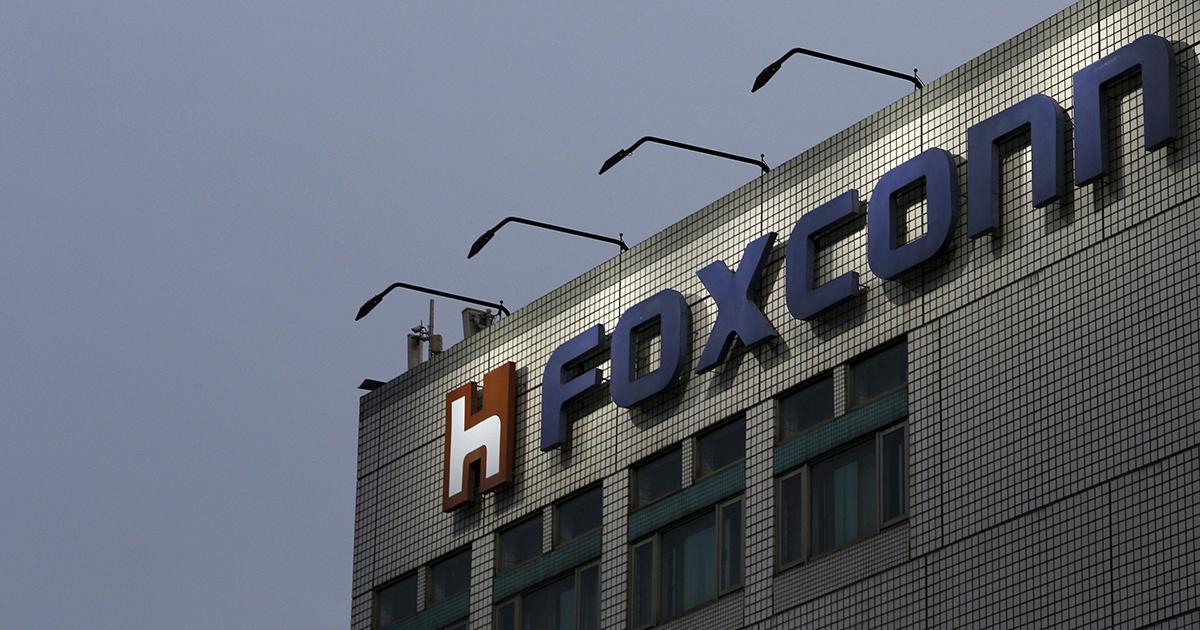Like Apple, Foxconn is also betting on India against China

Foxconn has bought a large parcel of land near Bangalore, one of India's tech hubs. The plan – shared with Apple – is to make the country an alternative iPhone manufacturing center to China. All the details
Taiwanese electronic components company Foxconn has purchased a large plot of land near the city of Bangalore, one of India's major technology hubs. This is important news because it concerns one of Apple's most important partner companies (it deals with the assembly of iPhones), but above all because it tells of the process of (partial) manufacturing detachment from China underway at an international level.
WHAT WE KNOW ABOUT FOXCONN'S MOVE TO BANGALORE
Foxconn Hon Hai Technology India Mega Development, the Indian subsidiary of the Taiwanese company, has purchased a 1.2 million square meter plot of land in Devanahalli, near the Kempegowda airport which serves the Bangalore metropolitan area. The deal is valued at $37 million.
FOXCONN'S PLANS FOR INDIA…
In March, the governor of Karnataka, where Bangalore is located, said Apple would "soon" begin assembling iPhones at a new factory in the state. The same month Bloomberg reported that Foxconn was considering a $700 million investment in a new factory in Karnataka.
In February, the president of Foxconn, Young Liu, visited Karnataka, saying he wanted to "deepen partnerships […] in new areas such as the development of semiconductors and electric vehicles," reports the Indian business newspaper Economic Times . He also discussed with Indian Prime Minister Narendra Modi the possibilities for the development of "India's innovation and technology ecosystem".
– Read also: Who is Terry Gou, the head of Foxconn who wants to become president of Taiwan
Foxconn has been assembling Apple's smartphones in India since 2019 at its factory in the state of Tamil Nadu . Two other Taiwanese companies, Wistron and Pegatron, are also involved in the manufacturing of Apple devices in India.
… AND THOSE FROM APPLE
Last September, Apple announced that it will produce the iPhone 14, its latest smartphone model, in India. The country accounted for 7 percent of global iPhone manufacturing in 2022, but Apple would like to increase the share to 25 percent.
In April, the Californian technology company opened its first two stores in India. So much attention to the country is not accidental, of course. First of all, demography has something to do with it: the Indian population is larger, according to some estimates , than that of China (1.417 billion people against 1.412). Adding to the vastness of the market is the fact that the Indian middle class is growing and willing to spend: Apple aims to satisfy this need with its iPhones, iPads, iMacs and so on.
THE DETACHMENT FROM CHINA AND THE “MAKE IN INDIA”
In both Apple's and Foxconn's plans, there is a detachment from China – where a large part of their manufacturing capacity is currently concentrated – to protect themselves from the political tensions between Washington and Beijing, which often find an outlet in trade: there is talk in fact of "trade war".
India is seen as a good alternative to China for manufacturing relocation. In addition to the large internal market and manpower, New Delhi is seen as a political counterweight to Beijing (given the bilateral rivalry) and as a nation more easily accessible to the bloc of Western democracies, although it has no intention of taking sides (and its close relations with Russia prove it).
The Modi government is trying to take advantage of the geopolitical context and has launched a plan, called "Make in India", to transform the country into a major global manufacturing hub: a "factory of the world", one could say, taking up an expression once associated with China.
This is a machine translation from Italian language of a post published on Start Magazine at the URL https://www.startmag.it/innovazione/foxconn-india-bangalore/ on Tue, 09 May 2023 14:03:33 +0000.
